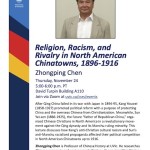Post-graduate research projects at the interface of Christianity, political conservatism, sustainability and ecological economy
Catholic/Christian Political Economy, Sustainability and Conservatism
Stephen Quilley
School of Environment Resources and Sustainability
Faculty of Environment
University of Waterloo
Waterloo
Ontario
Email: squilley@uwaterloo.ca
I’m interested in supervising post-graduate (Masters, Doctoral) research projects located (very broadly) at the interface of Christianity, political conservatism, sustainability and ecological economy.
Through the conviction that humans are created in the image of God (the Imago Dei), Judeo-Christianity bequeathed a conception of the individual as sacred – an idea that has provided the foundation for all modern conceptions of democracy, human rights and liberal freedom. By generating unprecedented degrees of social and spatial mobility, capitalist modernization has accelerated the process of psychological individuation whilst undermining the tissue of social relations tying individuals to their families and communities. The process of what Karl Polanyi called ‘disembedding’ has created great wealth and technological advancement. But it has also increased relative inequality and generated sometimes profound class and national antagonisms. As well as advancing social and political freedom (in places), capitalist modernity has also destabilized the life-support systems of the biosphere resulting in a global ecological crisis. It is an open question as to whether the great advances of modernity can be rendered stable, more equitable and sustainable.
Since the late 19th century, Catholic Social Teaching (CST) has pointed towards ‘Distributism’ as a middle way between capitalism and socialism. Balancing the excesses of both the State and the Market, with an emphasis on family, self-organised community and the principle of subsidiarity (‘Livelihood’), ‘Distributism’ has always overlapped with elements of both Christian socialism, libertarianism and conservatism. Insisting on the elemental rights and dignity of the individual, it also shares much with all forms of liberal and progressive thought. And through the work of people such as Ivan Illich (Tools for Conviviality, Deschooling Society), E.F. Schumacher (Small is Beautiful) and Christopher Alexander (The Pattern Language), social catholic political economy has also been a central but usually unacknowledged thread in radical green economics.
I’m interested taking on students with an interest in Christian/Catholic approaches to political economy, particularly as this pertains to sustainability. With regard to conventional politics, this might pertain to (i) the tension between the market-liberal strand in conservative and republican thought on the one hand and (ii) paleo- social- communitarian- and reactionary forms of conservatism on the other (Burke); as well as (iii) the potential overlap between the latter and ecological economy. As well as questions of economic and social organization, topics might relate to: political thought, ethics (esp. Alasdair Macintyre and Aristotelian/Thomist virtue ethics); political sociology (e.g. the recent disruptions associated working class populism on the political right); studies in the history of ideas; social movements and ideology; social innovation; and policy; historical sociology; environmental sociology.
The following are only indicative, and I am very open to suggestions:
The history and contemporary salience of distributism
Contemporary catholic social teaching and sustainability
The contemporary Catholic Land Movement (www.catholiclandmovement.com) and precursors
Conservative communitarians and green political economy
Alasdair Macintyre/virtue ethics and sustainability
Karl Polanyi and communitarian conservatism
The awareness and understanding of contemporary conservatives of CST and distributism
Anti-capitalist conservatism
Anti-globalism, relocalization and conservative localism (as in www.frontporchrepublic.com)
The Benedict (and other) Options
Christianity and environmentalism
Radical liberal arts/Catholic education applied to the problem of consumerism and ecological crisis (John Senior, Christopher Dawson)
Karl Polanyi, Augusto Del Noce, Charles Taylor, Ivan Illich and Alasdair Macintyre as critics of modernity
The College of St Joseph the Worker in Steubenville as a Social Innovation (https://aleteia.org/2022/07/31/the-story-behind-the-new-catholic-college-that-helps-students-avoid-crippling-debt/)
Transhumanism, liberalism and globalism in contemporary progressive thought
A green/localist critique of gender/race identity politics
21st century Christian apologetics and sustainability
A survey of heterodox conservative and post-liberal thought emerging in online arenas such as the Front Porch Republic, The Imaginative Conservative, First Things, New Polity,
UW School of Environment, Resources and Sustainability (SERS) is a very diverse and interdisciplinary unit in the Faculty of Environment. We have natural scientists, sociologists, systems thinkers, philosophers and policy wonks working on all manner of problems relating to the broad domain of people and the environment.


